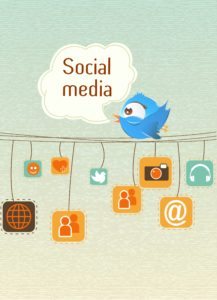Quick links, bringing you great articles on writing from all over the web.
Who doesn’t want more readers! They are the gift that keeps on giving! Here is a great podcast from Self-Publishing School to help you find more readers!
~ * ~
 Today, I am talking with Nick Stephenson. Nick is a bestselling author of fiction and nonfiction. Plus, he teaches new authors how to find their first 10,000 readers. Nick is a good friend of mine, and when we talk we geek out on things like marketing and audience building. We are always on Skype sharing our best stuff with each other. So I thought I should have him on the show to share these things that he does so well.
Today, I am talking with Nick Stephenson. Nick is a bestselling author of fiction and nonfiction. Plus, he teaches new authors how to find their first 10,000 readers. Nick is a good friend of mine, and when we talk we geek out on things like marketing and audience building. We are always on Skype sharing our best stuff with each other. So I thought I should have him on the show to share these things that he does so well.
Nick tells the story of how he never intended to be writer, but he knew he wanted to do something creative on his own terms. When Kindle books and self-publishing came along he thought it was a great opportunity to write a book. Even though his first book didn’t start out selling a lot, he was so encouraged that he wrote more books and even started teaching others to do the same. Nick says that if he can do it anyone can, and he shares a lot of amazing information today.
Read the full post on Self-Publishing School!

 In the past, I’ve recommended strict rules about social media use.
In the past, I’ve recommended strict rules about social media use. by Jo Linsdell
by Jo Linsdell By
By  Emotional wounds are transformative and have the power to re-shape a character in many negative ways, impacting their happiness, their self-worth, and causing mistrust and disillusionment to skew their worldview. This
Emotional wounds are transformative and have the power to re-shape a character in many negative ways, impacting their happiness, their self-worth, and causing mistrust and disillusionment to skew their worldview. This  When my first novel was published in 2013, all I knew was that I wanted to tell stories for a living. I’d grown up seeing Stephen King, Ray Bradbury and Anne Rice do it, and, having gotten paid $25 for the publication of a short story in Scholastic magazine when I was still in middle school, I’d had a little taste of doing it myself. But I had the idea that what my readers were most interested in was the story I was telling, and that they didn’t really care about ‘the man behind the curtain.’
When my first novel was published in 2013, all I knew was that I wanted to tell stories for a living. I’d grown up seeing Stephen King, Ray Bradbury and Anne Rice do it, and, having gotten paid $25 for the publication of a short story in Scholastic magazine when I was still in middle school, I’d had a little taste of doing it myself. But I had the idea that what my readers were most interested in was the story I was telling, and that they didn’t really care about ‘the man behind the curtain.’ I spend about a hundred hours a year reading writers’ manuscripts and doing content edits on their stories. I’ve seen it all–stories that ramble on for 400+ pages, never really getting to the point; stories that start off pretty good and then about a quarter of the way in change into a totally different story; stories where the voice changes so many times you couldn’t keep up if you wanted to… I could go on.
I spend about a hundred hours a year reading writers’ manuscripts and doing content edits on their stories. I’ve seen it all–stories that ramble on for 400+ pages, never really getting to the point; stories that start off pretty good and then about a quarter of the way in change into a totally different story; stories where the voice changes so many times you couldn’t keep up if you wanted to… I could go on. Beyond Nostalgia: authentic historical detail from fads, trends, and headlines can help you write books readers will relate to.
Beyond Nostalgia: authentic historical detail from fads, trends, and headlines can help you write books readers will relate to. by
by  5 Things Indie Authors Need to Consider Before Giving Up
5 Things Indie Authors Need to Consider Before Giving Up Hey Guys, Cait Reynolds, my co-author/partner in crime/therapist/evil half is here to talk about the birds and the bees and maybe bees tying up other bees. The “How To” of writing superior sex scenes is vital, just uncomfortable for me. Sorry. I blame my upbringing.
Hey Guys, Cait Reynolds, my co-author/partner in crime/therapist/evil half is here to talk about the birds and the bees and maybe bees tying up other bees. The “How To” of writing superior sex scenes is vital, just uncomfortable for me. Sorry. I blame my upbringing. Let’s talk about the opening line of your book. The first thing to know about “first lines” is that they are not going to make or break you. Sure, it’s a lot of fun coming up with great ones. But as long as the first line makes someone want to read the second line, and that line makes you want to read the third… you’re on the right track.
Let’s talk about the opening line of your book. The first thing to know about “first lines” is that they are not going to make or break you. Sure, it’s a lot of fun coming up with great ones. But as long as the first line makes someone want to read the second line, and that line makes you want to read the third… you’re on the right track.
 This post is part of Frankfurt Book Fair
This post is part of Frankfurt Book Fair  Blogger: Rachelle GardnerIf you’ve done any Facebook Live posts and paid attention to your traffic, you probably already have a good idea of how much more engagement you can get with FB Live versus other kinds of posts. This is especially true if you experiment with various kinds of content, times of day, length, and other variables.
Blogger: Rachelle GardnerIf you’ve done any Facebook Live posts and paid attention to your traffic, you probably already have a good idea of how much more engagement you can get with FB Live versus other kinds of posts. This is especially true if you experiment with various kinds of content, times of day, length, and other variables.
 Ready to take your writing seriously? Getting ready for NaNoWriMo and need some writing and productivity tips?
Ready to take your writing seriously? Getting ready for NaNoWriMo and need some writing and productivity tips?